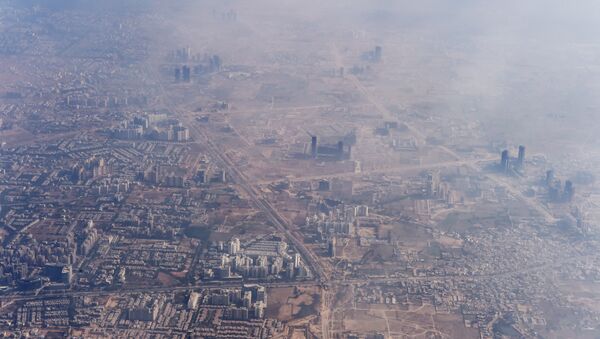“Clean air is a birth right. We are giving high priority to this. It has not been handled correctly over the last 10 years,” Prakash Javadekar was quoted as saying by The Guardian.
According to Javadekar, the Indian government will announce this week the first nationwide “composite, comprehensive” air index since the country has lacked a systematic collection of pollution data.
“What cuts? That’s for more developed countries,” Javadekar said in response to the question if India would offer a plan to cut its greenhouse gas emissions at the UN Climate Change Conference to be held in November 2015, The New York Times reported.
Javadekar also stressed in 2014 that his government’s first priority was to revive the nation’s economy, which would necessarily involve an increase in emissions through new coal-powered electricity and transportation.
According to the survey released by the World Health Organization (WHO) in 2014, the Indian capital of New Delhi, is the most polluted city in the world, with an annual average of 153 micrograms per cubic meter, six times higher than the acceptable norm. The Indian authorities claimed to reject the findings of the WHO study.



